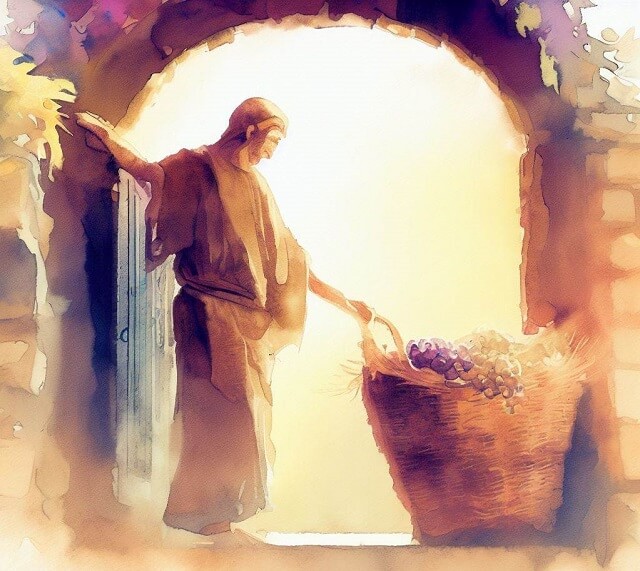
Levies for Levites
After the Korach rebellion, challenging the special status of the Levites and the Kohanim, God enumerated the various ways the Jewish people support the tribe of Levi. The Levites were engaged in the Temple service and teaching the nation, yet received no inheritance in the Land of Israel.
“To the descendants of Levi, I am now giving all the tithes (ma’aser) in Israel as an inheritance. This is exchange for their work, the service that they perform in the Communion Tent.” (Num. 18:21-22)
It is interesting to note that produce does not always need to be tithed. For example, we need not set aside ma’aser when snacking on fruit while it is still in the orchard. Unless the produce has entered the home, it does not require tithing.
At what exact point does one need to set aside a tenth for the Levites?
The Sages disagreed on this matter. Rabbi Yanai said that the fruit must cross the entrance of the house. According to Rabbi Yochanan, it is enough to enter the courtyard (Berachot 36a).
Why should tithing only be obligatory after the fruit has entered our property? And why did the Sages disagree whether it is the entrance to the house or the courtyard that determines this obligation?
Conquering Avarice
In addition to supporting the Levites, tithing fulfills an important function for the farmer donating his produce. People are naturally possessive of their property and money. Tithing provides us with the opportunity to rise above these selfish feelings of possessiveness, and contribute towards the spiritual aspirations of the community. Instead of merely satisfying our own personal pleasure, our produce acquires an elevated purpose, supporting the Temple service and the education of the nation.
We can distinguish between two levels of possession of property: de facto and emotional .
Rabbi Yanai spoke of the house-entrance as the moment at which one is obligated to tithe. He referred to the first form of ownership, de facto possession. The house is clearly one’s private domain, where his property is under his de facto control. According to Rabbi Yanai, the mitzvah of ma’aser teaches us to overcome and free ourselves from the self-centered sentiments of possessiveness when we are in complete, de facto control.
Rabbi Yochanan, on the other hand, pointed to the courtyard as the determining factor. The courtyard is a legal gray area. It is a place where the general public has access; yet, it also has characteristics of a private domain. Here we have a sense of ownership, even though it may not always be easy to enforce that sentiment. According to Rabbi Yochanan, even this weaker sense of possessiveness must be refined, so that we can completely elevate our private desires to universal, spiritual goals.
(Adapted from Ein Eyah vol. II, p. 175)





